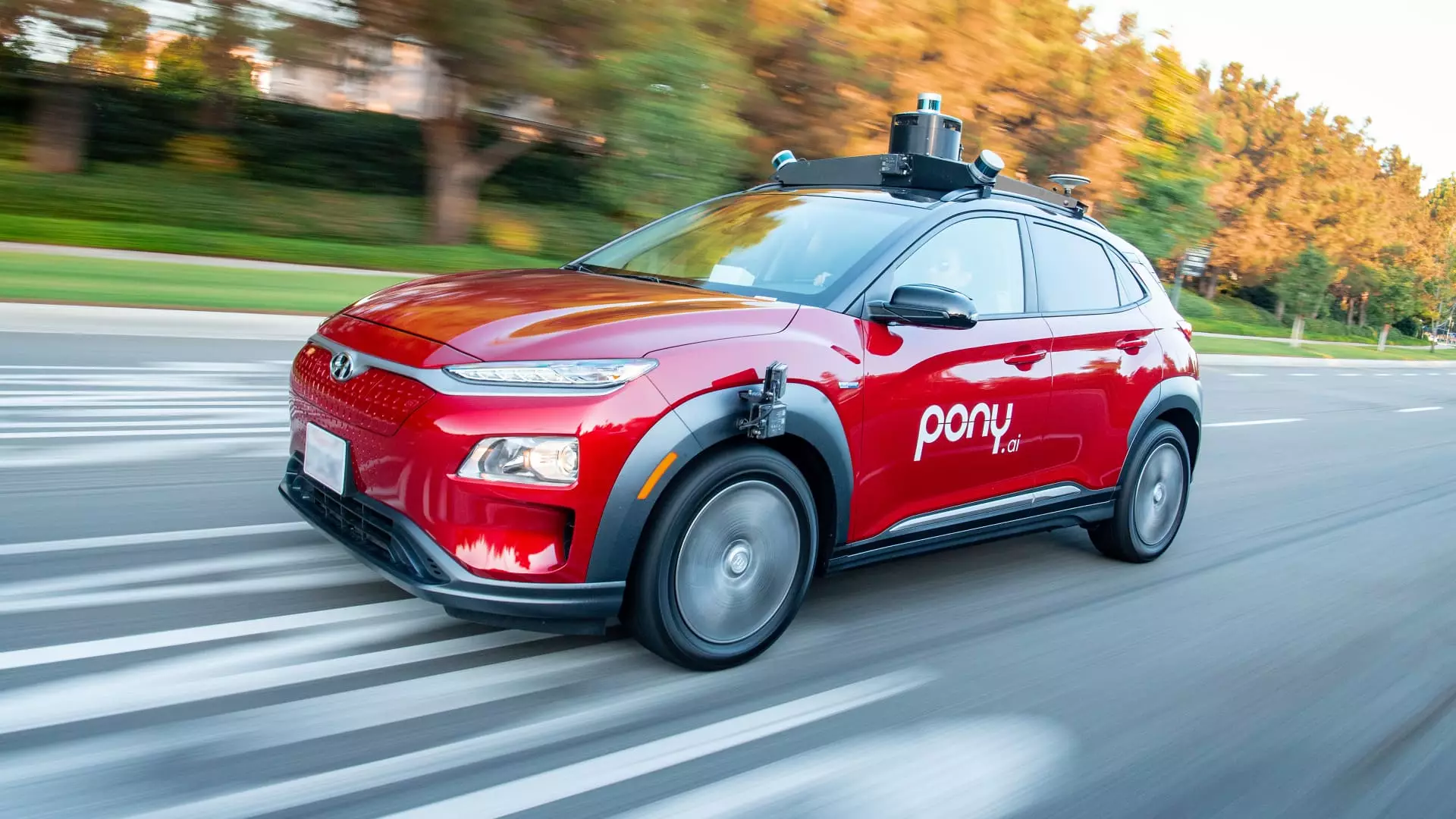In a groundbreaking move that could reshape urban transportation, Pony.ai, a forward-thinking Chinese start-up known for its advancements in autonomous driving technology, has announced a strategic partnership with Tencent Cloud. The synergy aims to integrate Pony.ai’s sophisticated robotaxi services directly into Tencent’s extensive ecosystem, notably its WeChat app, which boasts over a billion monthly active users. This collaboration comes at a time when the demand for efficient, accessible, and safe mobility solutions has never been higher.
The two tech giants recognize the potential of combining their respective strengths. Pony.ai has established itself as a leader in autonomous vehicle solutions, particularly in the realm of robotaxis and robotrucks. By joining forces with Tencent, renowned for its cloud capabilities, mapping services, and user engagement, the partnership is poised to enhance the quality of autonomous services available to the masses. This represents not just a business agreement, but a strategic alliance that aims to usher in an era of smarter urban mobility.
The Allure of a Super App
WeChat’s status as a “super app” offers a unique advantage for Pony.ai. Integrating robotaxi services into an application that users already trust for messaging, payments, and more provides an unprecedented opportunity to reach an engaged audience. If users can effortlessly summon a robotaxi with a few taps in WeChat, it could drastically increase the appeal and usage of autonomous vehicles. The convenience factor cannot be underestimated in this scenario; in today’s fast-paced world, time-saving solutions often garner the most attention from consumers.
James Peng, Pony.ai’s CEO, expressed optimism about this partnership, acknowledging Tencent’s vast user base as a powerful lever for growth. By tapping into Tencent’s channels, Pony.ai can accelerate its scaling efforts and potentially dominate the competitive landscape of autonomous ride-sharing. The mutual benefits of this collaboration are evident, as both companies stand to gain significantly from enhanced data sharing and leveraging robust cloud services.
Pioneering Level 4 Autonomous Driving
A significant component of this partnership revolves around advancing Level 4 (L4) autonomous driving technology, which allows vehicles to operate without human intervention under certain conditions. According to industry standards set by SAE International, L4 represents a leap in technological capability that could redefine transportation norms. The collaboration emphasizes not only the technical aspects but also the safety of passengers—an essential consideration as these vehicles hit the public roads.
The idea of fully autonomous vehicles transitioning from testing phases to real operational service is thrilling. With Pony.ai having received a permit to charge fares for fully driverless taxis in Shenzhen, this advancement signals a new chapter in the journey towards a widely accepted autonomous ride-hailing service. These developments could provide Pony.ai with a much-needed edge in the competitive arena of autonomous driving.
Industry Dynamics and Future Implications
While the partnership paints a promising picture for both companies, it’s essential to acknowledge the broader context in which they operate. Pony.ai’s ambitions extend beyond the Chinese market, with the United States being an integral part of its expansion strategy. However, increasing geopolitical tensions between China and the U.S. pose significant risks, particularly in the tech sector. Reports suggest that Pony.ai is contemplating a secondary stock listing outside the U.S., a move influenced by the uncertain climate regarding Chinese companies in American markets.
This highlights an often-overlooked aspect of technology partnerships: the intersection of innovation and geopolitical realities. As Pony.ai navigates this complex landscape, its aspirations could be hindered by external factors beyond its control. It’s a fascinating time, as market dynamics shift and companies must adapt to not only technological advancements but also mounting regulatory scrutiny.
The partnership between Pony.ai and Tencent Cloud is more than a strategic alignment; it is a bold step into the future. With the ambition to pioneer autonomous transportation through technological innovation, Pony.ai is positioning itself at the forefront of a critical evolution. The implications of this partnership extend beyond immediate business interests, serving as a case study for how collaboration can lead to revolutionary changes in urban mobility.

